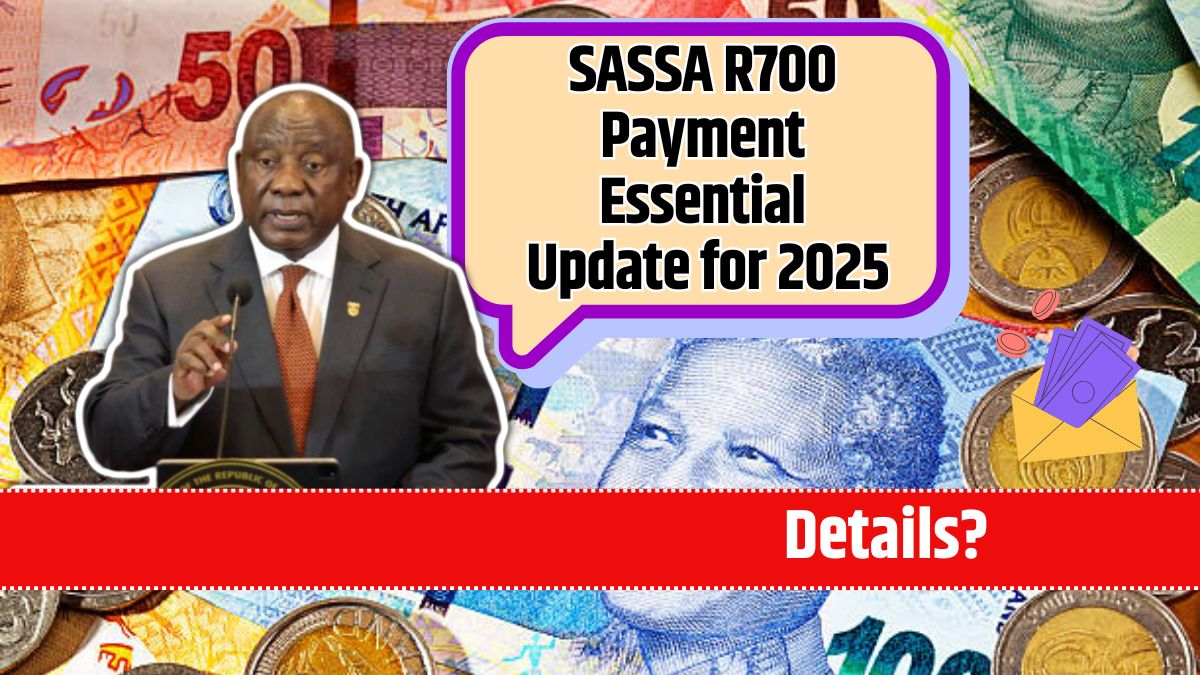A fraudulent message claiming to offer a SASSA R700 Grant for 2024 is circulating widely on platforms like WhatsApp and Facebook.
This scam aims to deceive unsuspecting individuals into sharing sensitive personal information.
Here’s everything you need to know about the fake grant, how to recognize red flags, and ways to protect yourself from falling victim to this scam.
The Fake SASSA R700 Grant Message
The scam message falsely claims that the South African Social Security Agency (SASSA) is offering an R700 payment to eligible citizens in 2024. Below is an example of the scam text:
“SASSA is now accepting applications for the R700 Grant for 2024. Online registration is open to all eligible citizens aged 18–65. Over 675,000 citizens will benefit. Payments have already begun. Apply now: https://lb.ke/R700-Cash-Grant-Transfer.”
Red Flags Indicating the Scam
| Red Flag | Description |
|---|---|
| Unofficial Link | The URL provided is not associated with SASSA’s official website (https://www.sassa.gov.za). |
| Antivirus Alerts | Clicking the link triggers antivirus warnings, indicating potential malware or phishing attempts. |
| Dodgy Website | The fake site uses a blurry SASSA logo and poorly designed forms requesting sensitive details. |
| Fake Testimonials | Fabricated comments from “beneficiaries” aim to mislead users into trusting the scam. |
| Grammar Errors | Poor grammar and spelling mistakes in the message, typical of phishing schemes. |
Protecting Yourself from Grant Scams
To safeguard yourself and others from these scams, follow these precautions:
1. Verify Information with Official Sources
Always check the authenticity of any new grant by visiting a SASSA office or the official SASSA website (https://www.sassa.gov.za). Avoid relying on unverified social media messages.
2. Use Official Contact Channels
For inquiries, contact SASSA through their verified phone numbers or customer care channels listed on their official website.
3. Avoid Clicking Suspicious Links
Do not click on links in unsolicited messages or emails. Verify the legitimacy of any website before entering personal details.
4. Report Suspicious Activities
If you encounter a scam, report it to SASSA through their official contact details.
5. Protect Personal Information
Never share your ID number, banking details, or other sensitive information online unless you are certain of the source.
Steps to Report a Scam
If you come across fraudulent messages or websites, take the following steps:
- Document Evidence: Take screenshots of the message, website, or suspicious activity.
- Notify SASSA: Report the scam through SASSA’s official channels.
- Alert Family and Friends: Share information about the scam to raise awareness.
- Contact Authorities: Report the incident to your local cybercrime unit or South Africa’s Fraud Prevention Service.
How to Identify Genuine SASSA Grants
Key Features of Legitimate SASSA Announcements:
- Information is shared via official SASSA channels (website, verified social media accounts, and press releases).
- Applications for grants are processed at SASSA offices, not through third-party links.
- No fees are required to apply for any SASSA grant.
Stay Informed and Vigilant
Scammers continue to target vulnerable individuals by exploiting trusted institutions like SASSA.
By staying informed, verifying all grant-related information, and following the precautions outlined here, you can protect yourself and help others avoid becoming victims of fraud.
















